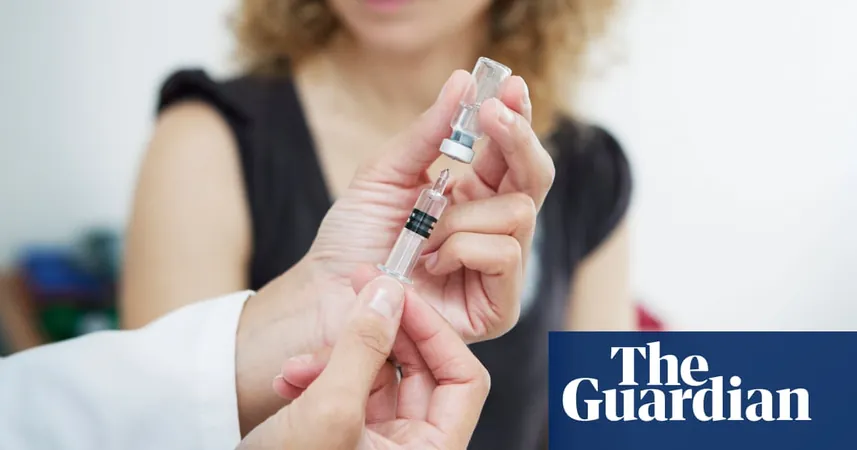
Revolutionary Injection Could Transform Long-Term Contraceptive Options!
2025-03-24
Author: Ling
In a groundbreaking development that could reshape the landscape of contraceptive options, scientists are working on a remarkable injection that promises to create a long-lasting contraceptive implant directly within the body. This innovative approach could revolutionize how drugs are administered over extended periods and offers hope for better medical solutions in underserved regions.
Typically, contraceptive implants are effective for years, sparing women from the need to take daily pills. However, these devices require a trained professional for insertion through a minor surgical procedure. While contraceptive injections already exist, they are limited to a mere three-month duration.
Now, researchers have completed successful proof-of-concept experiments for a novel long-lasting implant that self-assembles inside the body, marking a significant advancement in contraceptive technology. Though still pending human trials, the scientists behind this innovative method foresee its potential benefits extending beyond contraception, as it could provide a straightforward way to deliver long-acting drugs—an essential solution for many parts of the world grappling with insufficient medical infrastructure.
“This method is suitable for any poorly soluble hydrophobic drug, especially where prolonged delivery is vital. This includes treatments for HIV, tuberculosis, schizophrenia, chronic pain, or metabolic diseases,” stated Dr. Giovanni Traverso, a co-author from the Massachusetts Institute of Technology and a gastroenterologist at Brigham and Women’s Hospital.
The process involves injecting micro-crystals of a synthetic version of the hormone progesterone contained in a solvent that does not easily mix with water. Once introduced into the body, the solvent interacts with bodily fluids, yet the micro-crystals tend to cluster together rather than dissolve in the water-rich environment. This results in the formation of a solid implant capable of releasing the drug steadily over time.
Published in the journal *Nature Chemical Engineering*, the study demonstrated that the drug release in rats was sustained for at least 97 days, although there is optimism about longer durations with formulation adjustments. “The dosing and drug volumes could be compatible with multi-year delivery,” Dr. Traverso added, noting that the implant can be removed if necessary and that the technique works with small needles for less invasive administration.
However, it is important to recognize that this research is still in its infancy, and the efficacy of this approach has yet to be confirmed through human testing. “We are laying the groundwork for future human studies, which we hope will be initiated in the next three to five years,” Traverso mentioned.
Dr. Janet Barter, president of the Faculty of Sexual and Reproductive Healthcare, expressed enthusiasm for this promising innovation. “This advancement has the potential to provide a convenient option for individuals in low-resource settings, where access to contraception and healthcare services can be limited,” she noted. Dr. Barter also emphasized the necessity of further research to ensure that this technology meets the needs and preferences of individuals who would rely on it.
In a world where access to reliable contraceptive options remains crucial for many, this groundbreaking research could not only change the way contraception is delivered but also pave the way for significant advancements in treating other medical conditions. Stay tuned as we keep you updated on this exciting journey towards a new era in drug delivery and reproductive health!





 Brasil (PT)
Brasil (PT)
 Canada (EN)
Canada (EN)
 Chile (ES)
Chile (ES)
 Česko (CS)
Česko (CS)
 대한민국 (KO)
대한민국 (KO)
 España (ES)
España (ES)
 France (FR)
France (FR)
 Hong Kong (EN)
Hong Kong (EN)
 Italia (IT)
Italia (IT)
 日本 (JA)
日本 (JA)
 Magyarország (HU)
Magyarország (HU)
 Norge (NO)
Norge (NO)
 Polska (PL)
Polska (PL)
 Schweiz (DE)
Schweiz (DE)
 Singapore (EN)
Singapore (EN)
 Sverige (SV)
Sverige (SV)
 Suomi (FI)
Suomi (FI)
 Türkiye (TR)
Türkiye (TR)
 الإمارات العربية المتحدة (AR)
الإمارات العربية المتحدة (AR)